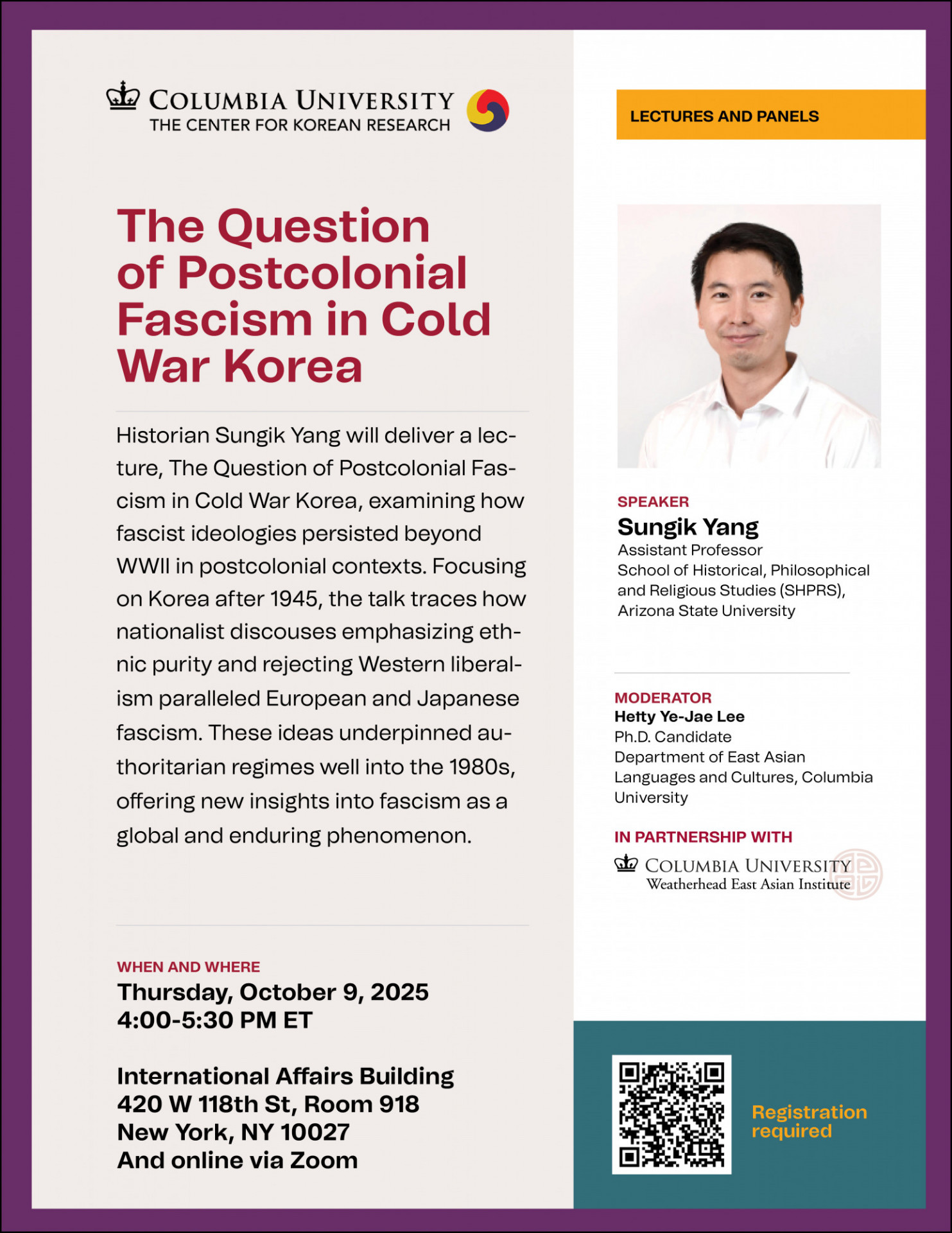
- This event has passed.
The Question of Postcolonial Fascism in Cold War Korea
10/09/2025 @ 4:00 pm - 5:30 pm
Speaker: Sungik Yang, Assistant Professor, School of Historical, Philosophical and Religious Studies (SHPRS), Arizona State University
Moderator: Ruth Barraclough, Korea Foundation Associate Professor of Modern Korean History, History Department; Director, Center for Korean Research, WEAI
Sungik Yang is a political and intellectual historian of modern Korea, focusing on nationalism, historical memory, the history of democracy, and the content and dissemination of political ideology in Korea. His current book project examines the discursive hegemony of fascistic nationalism, anti-Westernism, and collectivism in Korea during the twentieth century, particularly after liberation from Japanese colonial rule in 1945. He is also interested in researching the rise and fall of Korean Cold War liberalism, the conceptual history of democracy in Korea, and South Korea’s regional diplomacy during the Cold War.
Fascism as a concept has become relevant once again with the resurgence in radical right-wing politics around the world, but its definition has remained dominated by a Eurocentric perspective that imagines it as a historical phenomenon of interwar Europe. However, fascism was a global discourse that was present beyond Europe, including Asia. In addition, fascism did not just end with the denouement of World War II, but found expressions after the war. The case of postcolonial Korea emerges as an intriguing case study to better understand the nature and appeal of fascism. In Korea after 1945, the year Korea gained independence from Japanese colonial rule, there arose a heavily nationalist ruling discourse that openly promoted ethnic purity and rejected core tenets of Western liberalism, containing strong parallels with fascist ideologies in Europe and Japan. This hegemonic discourse pervaded Korean political culture for decades, helping to prop up authoritarian regimes in the country until the 1980s. By analyzing how fascism took root in a postcolonial nation-state even after World War II, we can gain an understanding of how fascism was a universal phenomenon, expanding its applicability across time and space. Moreover, by expanding our perspectives on what fascism is, we can also get a better grasp on its enduring appeal in global politics even today.
This event is hosted by the Center for Korean Research and co-sponsored by the Weatherhead East Asian Institute.
For registration, please click here: https://ckr.weai.columbia.edu/events/question-postcolonial-fascism-cold-war-korea.


